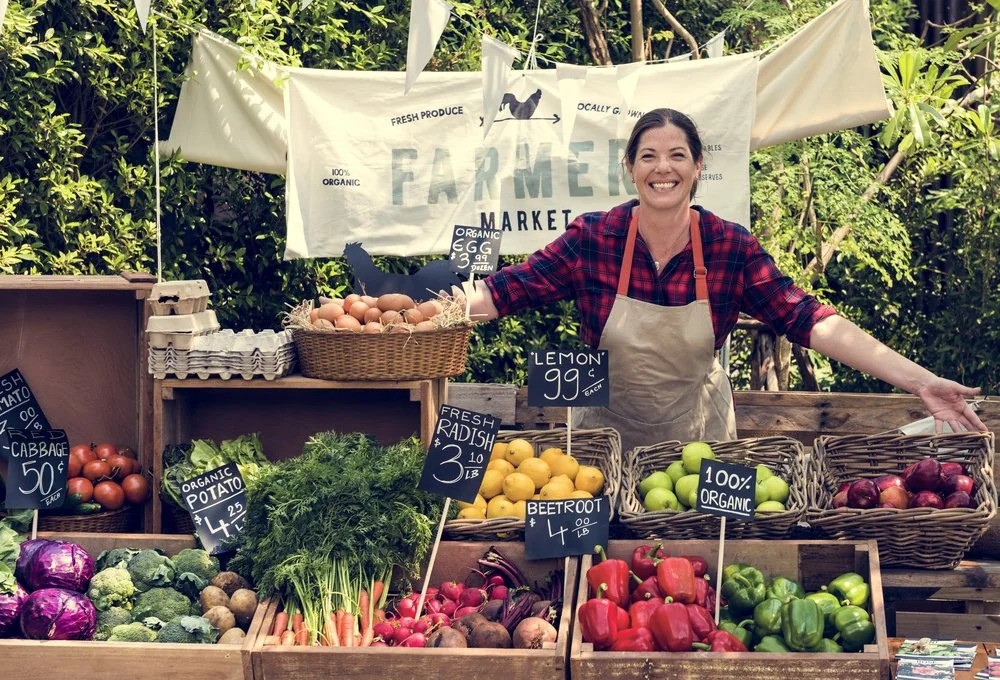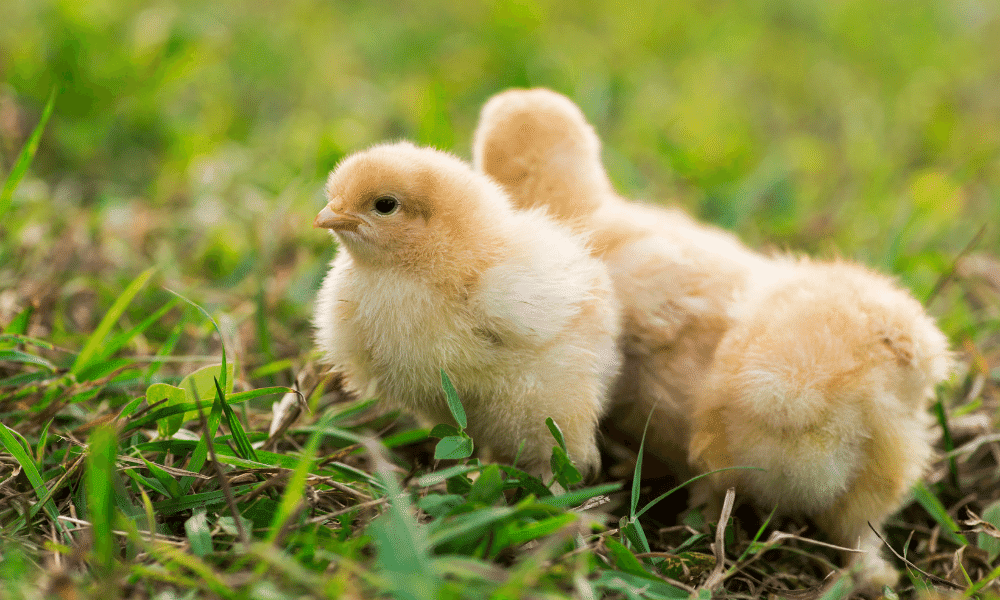Egg Shortages and Avian Influenza: The Safety of Farm-Fresh Eggs During the Bird Flu Outbreak
Is your grocery store sold out of eggs? You're not alone! Egg shortages at grocery stores have left many people wondering where to find a reliable source of fresh eggs. Local small farms offer a fantastic solution, providing high-quality eggs, often with better flavor and nutritional value than store-bought options. But with avian influenza (bird flu) making headlines, some consumers may have concerns about safety.
Here’s why you can feel confident buying eggs from small farms and how to support local farmers while prioritizing your health.
Why Eggs From Small Farms Are a Great Choice
Freshness and quality: Eggs from small farms are often collected and sold quickly, ensuring they are as fresh as possible. Local farmers take pride in their products, and the shorter time from farm to table means better flavor and nutrition.
Availability: When big-box stores experience shortages, local farms can often meet the demand. Their smaller-scale operations are more agile and less impacted by national supply chain disruptions.
Supporting your community: Buying from small farms helps sustain local agriculture, putting your money directly into the hands of farmers and their families.
Understanding Avian Influenza and Eggs
Recent headlines about avian influenza (bird flu) may raise questions about the safety of consuming eggs, especially those sourced from small farms. However, the facts and expert recommendations consistently show that the risk of contracting avian influenza from eggs is extremely low, and proper food safety practices can further reduce this already minimal risk.
What is Avian Influenza?
Avian influenza, often called bird flu or H5N1 flu, is a viral infection affecting wild and domesticated birds, including chickens and turkeys. Caused by influenza A viruses, it spreads through direct contact, contaminated surfaces, or infected droppings.
The H5N1 strain is particularly concerning due to its high transmissibility among birds. While it has severely impacted poultry populations and the global egg supply, the risk to humans remains low and is primarily linked to close exposure to infected animals. Understanding how H5N1 spreads and practicing strict biosecurity measures are essential for protecting both public health and poultry production.
Low Risk of Avian Influenza From Eggs
Avian influenza is primarily a disease that affects birds and is rarely transmitted to humans. According to the U.S. Department of Agriculture (USDA), the virus is not commonly found in eggs, even when an infected flock is identified. Strict food safety standards, inspection programs, and packaging requirements in the U.S. help ensure that eggs reaching consumers are safe.
The Centers for Disease Control and Prevention (CDC) states that “there is no evidence to suggest that properly handled and cooked eggs can transmit avian influenza to humans.” This is reassuring for those looking to support small farms during egg shortages or to enjoy farm-fresh eggs.
Safe Cooking Practices for Eggs
Proper cooking remains one of the most effective ways to eliminate any potential risk from eggs, including the avian influenza virus. The USDA recommends cooking eggs to a minimum internal temperature of 160°F (71°C).
Cooking techniques that achieve this temperature include:
Hard-boiling: Cook eggs until both the yolk and white are firm.
Scrambling: Ensure no liquid egg remains after cooking.
Frying: Cook eggs on both sides or until the yolk is firm.
These methods can help offer safety and also preserve the delicious qualities of fresh eggs from small farms.
Safe Handling Practices at Home
Proper egg handling practices in your kitchen are critical to maintaining food safety and minimizing risks:
Wash your hands thoroughly with soap and water before and after handling eggs.
Keep eggs refrigerated at or below 40°F (4°C) to slow bacterial growth.
Avoid cross-contamination by cleaning all surfaces, utensils, and cutting boards that come into contact with raw eggs.
Use gloves or wash hands immediately after handling eggshells.
These steps are simple but highly effective in preventing the spread of any pathogens, ensuring that your kitchen remains safe and sanitary.
Marketplace
You might also be interested in...

Shop for chickens, livestock or other farm goods

About Farm Expo Events

Sell Your Chicks and Eggs
What Experts Say About Egg Safety
Multiple reputable organizations, including the CDC and USDA, emphasize that properly cooked and handled eggs pose little to no risk to human health during an avian influenza outbreak.
USDA: “Cooking eggs to a safe temperature destroys avian influenza viruses, as well as common bacteria like Salmonella.”
FDA: “No evidence suggests that humans have been infected with avian influenza by eating properly cooked eggs or egg products.”
These expert recommendations underline the importance of proper cooking and handling, giving you confidence in enjoying farm-fresh eggs even during periods of heightened concern.
Supporting Local Farms Responsibly
Small farms often implement robust biosecurity measures to protect their flocks from avian influenza, which further reduces the likelihood of any contamination in their products. By purchasing eggs from small farms, you not only access fresh, high-quality products but also support local farmers who are working hard to maintain safe and sustainable practices.
How to Find Local Eggs:
Check your local farmers market.
Search online directories for small farms in your area.
Use platforms like Roobeez to connect directly with local farmers selling eggs.
What to Do If You Have Your Own Flock at Home
If your flock isn’t laying and you’re buying eggs from another local farm, it’s essential to take precautions to protect your birds. Here’s how to minimize risks:
Avoid cross-contamination: Wear designated shoes when visiting another farm and disinfect them before entering your coop. Wash your clothes and hands after handling eggs or visiting the farm.
Handle eggs safely: If the eggs are unwashed, avoid washing them until just before use. Store purchased eggs in the refrigerator, away from materials or areas used for your own flock.
Minimize exposure: Avoid entering areas where other flocks roam to reduce the chance of bringing home pathogens.
Disinfect packaging: Transfer eggs to clean containers and discard the original packaging. Disinfect surfaces that come into contact with packaging or eggs.
Monitor your flock: Always be sure to keep an eye on your birds for unusual symptoms and consult a vet if needed.
Conclusion: Local Eggs Are a Smart Choice!
During an avian influenza outbreak, buying eggs from small farms is a smart way to access fresh, high-quality eggs while supporting local agriculture. With proper handling and cooking, you can enjoy the benefits of farm-fresh eggs and help small farms thrive.
Disclaimer: This blog is for informational purposes only and does not constitute medical advice. For specific health concerns, consult a qualified healthcare professional. Roobeez is not responsible for any medical outcomes or decisions based on this content.
Frequently Asked Questions about Eggs from Small Farms and Avian Influenza
-
Bird flu, also known as avian influenza or H5N1, is a viral infection that primarily affects birds, including wild species and domesticated poultry like chickens, ducks, and turkeys. It is caused by influenza A viruses, which can spread through direct contact with infected birds, contaminated surfaces, or bird droppings.
-
The current egg shortage is largely due to the impact of avian influenza (AKA bird flu) on commercial poultry farms. Highly pathogenic strains like H5N1 have led to the culling of millions of birds to prevent the virus’s spread, significantly reducing egg production.
-
There is no current evidence that avian influenza can be transmitted to humans through properly cooked eggs. Cooking eggs to an internal temperature of 160°F (71°C) kills the virus.
-
Yes, eggs from small farms are safe to eat when proper cooking and handling practices are followed. Small farms often implement biosecurity measures to protect their flocks and products.
-
Always wash your hands before and after handling eggs, store them in the refrigerator at or below 40°F (4°C), and clean any surfaces or utensils that come into contact with raw eggs.
-
You can purchase eggs directly from local farmers, shop at farmers’ markets, or use online platforms like Roobeez to connect with small farms selling fresh eggs.
-
Yes, but take precautions to protect your flock! Important steps include: wearing designated shoes for visiting other farms, disinfecting them afterward, and avoiding areas where other flocks roam.
-
Cook eggs to an internal temperature of 160°F (71°C). Options include hard-boiled, scrambled, or frying until the whites and yolks are firm.
-
Small farms typically offer fresh, high-quality eggs, support local agriculture, and are often more adaptable to meet demand during egg shortages.
-
Egg shortages at grocery stores often result from disruptions in large-scale supply chains, which are more vulnerable to delays and disease outbreaks. Small farms, however, operate on a local scale, allowing them to remain flexible and resilient.
You might also be interested in…
















Discover farmers markets near you with Roobeez! Explore local events, find seasonal and weekly markets, and shop fresh produce and handmade goods on our marketplace. Contribute to our growing directory by adding your favorite markets and community events. Supporting local has never been easier!